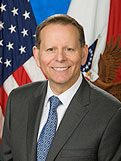

1:00 pm EDT - 3:00 pm EDT
Past Event
1:00 pm - 3:00 pm EDT
1775 Massachusetts Avenue N.W.
Washington, DC
20036
Since September 11, 2001, 3.3 million Americans have served in uniform. As of October 7, 2019, the Defense Department reports that 7,028 have died and 53,010 service members have been wounded in action, but this is just a fraction though of those who are estimated to have been adversely impacted by the longest wars in American history. The Department’s own Defense and Veterans Brain Injury Center reports that more than 380,000 have sustained traumatic brain injuries, and RAND estimates that, “Nearly 20 percent of military service members who have returned from Iraq and Afghanistan reported symptoms of post-traumatic stress disorder or major depression.” The need for services and support continues to grow even as the numbers of killed and wounded decline, and the public’s interest and involvement wanes.
On October 30, Wounded Warrior Project (WWP) and the Brookings Institution unveiled the results of WWP’s 10th Annual Warrior Survey (AWS) and hosted a panel discussion about the most pressing issues facing America’s servicemembers and veterans. The AWS is America’s largest and most comprehensive survey of wounded, injured, and ill veterans and provides the latest snapshot of their mental, physical, and economic health and wellbeing.
Panelist


Keynote

Keynote

Scott R. Anderson, Aslı Aydıntaşbaş, Pavel K. Baev, Vanda Felbab-Brown, Daniel S. Hamilton, Kari Heerman, Mara Karlin, Patricia M. Kim, Lynn Kuok, Michael E. O’Hanlon, Steven Pifer, Stephanie K. Pell, Landry Signé, Melanie W. Sisson, Constanze Stelzenmüller, Caitlin Talmadge, Tara Varma, Valerie Wirtschafter, Andrew Yeo +14 more
December 8, 2025

Ryan Hass
April 14, 2025

Lynn Kuok
April 14, 2025